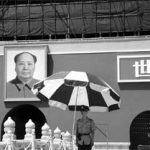Starting again from Marx
Let us start again from Marx. 1 Why? Is it because we are communists? No, this answer is not convincing. We could start again from somewhere else, from Lenin, or Mao; or, we could believe that current feminist or anti-racist struggles have no need for Marx; we could even think that Marx’s Eurocentrism makes him […]








